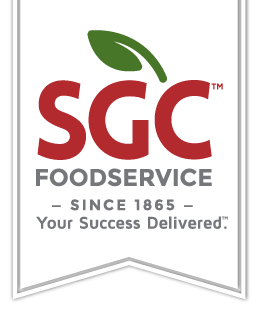Bar and restaurant owners are busy. You have so many things to consider every day: finances, branding, quality control, staffing, labor shortages – the list goes on. And on top of all of that, there’s employee safety. As a bar or restaurant operator, you need to make sure the people who run your business are safe.
Commercial kitchens are hazardous by nature. Danger comes with the territory when you’re surrounded by knives, hot ovens, boiling oil, and slippery floors. Over 93,000 non-fatal injuries were recorded by restaurant workers in the previous year. That’s why it's critical to train your teams for optimal commercial kitchen safety.
The following is a list of ways to help you and your staff avoid accidents and injuries. Preventing workplace accidents will save you money and give your staff a more enjoyable and secure job. Remember, it’s crucial to follow local health regulations and OSHA standards, as well as the fundamentals of working in a commercial kitchen.
Here are 8 ‘dos’ and 8 ‘don’ts’ to ensure your bar or restaurant’s staff stay safe in your commercial kitchen.
Do…
Wear Protective Clothing
Make sure your staff is wearing protective clothing such as gloves, aprons, and jackets when working with potentially harmful equipment, and that they aren't wearing loose or baggy clothing.
Wash Your Hands Frequently
Hand washing is required in a commercial kitchen to maintain a sanitary working environment. It guards you against food poisoning and contamination. Handwashing with hot water and soap is recommended at regular intervals.
Store Cleaning Supplies Properly
Cleaning supplies like towels, rags, and washcloths, as well as storage devices like potholders and racks, should be kept away from the stove because they are made of combustible materials.
Keep Knives Sharp
Instruct your staff to keep their knives and cutlery sharp, and clean, at all times in the kitchen. Injuries in the kitchen are most commonly caused by blunt knives. Any knives that show signs of rust should be thrown away. And it goes without saying, they should be cleaned after every use.
Have a Bright Kitchen
Make sure the kitchen is well-lit and has enough natural light. Employee safety and comfort are enhanced by good lighting and ventilation.
Maintain Equipment
All commercial kitchen equipment should be serviced on a regular basis. Poorly maintained equipment poses a serious threat to professional kitchen safety, putting your employees at risk.
Teach Fire Safety
The majority of fires happen in the kitchen. It is critical to have a fire extinguisher on hand to put out any flames that may arise during operations. In the event of a fire, concentrate on smothering the flames rather than using water, especially when it comes to oil fires. Staff should be trained on the different types of fires, and how to prevent and tame them.
Use Slip-Proof Mats
The kitchen floor can easily get oily and slippery. Place strong and slip-proof mats on the floor to help improve commercial kitchen safety for your employees.
Don’t…
Splash Hot Oil
Staff should refrain from dumping prepared products into fryers and pans. A hot oil splash can cause catastrophic burn damage.
Store Plastic in the Oven
Plastic containers should not be used to heat or cook food in ovens. Plastic containers contain flammable materials that can cause a kitchen fire, and pre-heating the oven without checking inside is an easy mistake to make. If you keep your plastic containers in the oven, that mistake can become costly.
Use a Damaged Microwave
Microwave ovens with broken parts or doors should not be used. These are a big risk to commercial kitchen safety since they can generate sparks that lead to fires, and leak radiation emissions.
Keep Leftovers Next to Raw Food
If leftovers are stored in the same place as fresh foods or raw materials, it can result in cross-contamination.
Overfill Pots and Pans
The pots and pans should not be overfilled with oil and grease. Adding water or oil beyond the capacity of a utensil can result in significant burns or scorching injuries.
Overload the Oven
Overloading an oven beyond its capacity can result in damage or, worse, a fire. Keep in mind the weight and volume restrictions while following the manufacturer's instructions for the oven's capacity.
Put a Hot Glass on a Wet Surface
Hot glass tends to fracture and combust when placed on water or wet surfaces. Not only can this harm kitchen equipment, but the glass shards that result can cause cuts and lacerations.
Move Hot Oil
After using a fryer or a deep-frying pan, avoid shifting and sifting the oil. Allowing the oil to cool will improve commercial kitchen safety and reduce the risk of burn accidents.
Source: Bar & Restaurant

